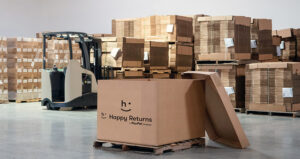
ESG and Your Supply Chain: 3 Steps to a Streamlined Strategy
ESG and DEI+J are hot topics in retail, and supply chain is a particular area of focus. Their importance will continue to grow, and their relevance increase as younger generations enter the workforce. Here are some important ways to boost sustainability in your supply chain as you work to integrate it into your overarching ESG/DEI+J strategy.








